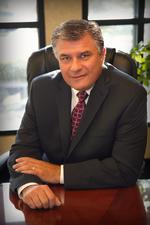Tesla has a reputation for making some of the most sophisticated vehicles on the road. Founded in 2003, the automaker's popularity has risen dramatically in recent years, with drivers eager to take advantage of the brand's array of advanced features. However, after a series of highly publicized crashes involving its standard Autopilot and full self-driving (FSD) upgrade features, Tesla is attracting both bad buzz and regulator scrutiny. Attempting to reduce the risk of additional .jpeg) accidents caused by drivers misusing its features, the company announced it would begin activating the interior cameras in certain models to monitor drivers for attentiveness.
accidents caused by drivers misusing its features, the company announced it would begin activating the interior cameras in certain models to monitor drivers for attentiveness.
Hurt in a crash caused by a negligent Tesla driver? You may be entitled to compensation for resulting losses. Here's what you should know about these complex accident cases and how the exceptional attorneys with the Inland Empire Law Group can help you navigate the legal system and fight for fair damages.
Tesla Autopilot Limitations
The Society of Automotive Engineers (SAE) recognizes six levels of vehicle automation ranging from 0 to 5, where 0 indicates no self-driving features and 5 is fully autonomous and capable of performing all driving functions under all conditions—with or without a driver.
Despite its name, Tesla Autopilot isn't actually a self-driving system. Instead, it's a suite of "driver assistance features" that, even when upgraded to FSD mode, offers just level 2 automation. This means that, while some functions like steering or acceleration are automated, the driver must remain alert, engaged, and ready to take over whenever necessary. Unfortunately, a string of crashes and numerous online videos of drivers sitting or sleeping in the back seat of their Tesla while the Autopilot and FSD systems are in use suggests that a number of drivers may not be using these advanced features according to instruction.
Monitoring Autopilot Users
In 2021, Tesla announced that it would activate an in-cabin camera located above the rearview mirror to monitor drivers whenever Autopilot or FSD systems are on—and send an audible alert to those it determines aren't paying sufficient attention to the road. Tesla has previously used torque measuring steering wheel sensors to gauge attentiveness. However, many drivers uploaded videos showing how they were able to trick the sensors into thinking human hands were holding the steering wheel. The new camera monitoring system is intended to reduce the risk of abuse and resulting accidents. Even with many advances made by Tesla or other companies venturing into the autopilot world, mechanical, technical and human mistakes are still possible, thereby causing collisions and injuries along the way.
Seeking Compensation for a Tesla Autopilot Crash
California law requires drivers to remain alert and attentive, and exercise reasonable care while piloting their vehicles. Having a vehicle with systems that are designed to assist them with some driving tasks doesn't absolve motorists of the responsibility to pilot their vehicles safely.
If you were hurt in a crash caused by a Tesla driver's negligence, or by the driver assist devices failing to operate properly, you can file an insurance claim or lawsuit to seek compensation for a wide range of damages. However, the legal system is complex and successfully navigating it can be complicated. Having a skilled personal injury attorney by your side can help you level the playing field, protect your rights, and ensure that no option goes unexplored.
Our exceptional Inland Empire legal team can investigate your case, gather essential evidence, and build a strong case for damages. Dependent upon the facts and evidence, we may be able to help you recover medical expenses, lost wages, pain and suffering, and other losses. Not sure which types of damages may apply in your California Tesla crash case? Talk to us about your case.
Request a Complimentary Initial Consultation
After a serious accident, there's far too much at stake to go it alone. Fortunately, you don't have to. At the Inland Empire Law Group, our team of conscientious legal counselors can help you understand, explore, and assert your rights. Take advantage of a free initial consultation. Contact us today at (888) 694-3529 or (909) 481-0100 to schedule an appointment for a complimentary case review. Don't wait—the time to file a claim is limited.
|
Related Links: |

